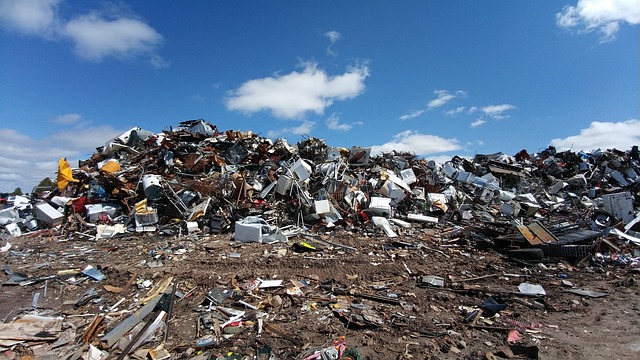EN 16203 Fluoride in Hazardous Waste Materials
The European standard EN 16203 provides a standardized method for determining fluoride content in hazardous waste materials. This test is crucial for ensuring compliance with environmental regulations and maintaining the safety of workers and the environment.
Fluoride, when present in high concentrations, can pose significant risks to human health and the ecosystem. It is important to identify and quantify fluoride levels accurately to manage and dispose of hazardous waste safely. This standard offers a precise method for measuring fluoride through an ion-selective electrode (ISE) technique.
The procedure involves dissolving the hazardous waste material in nitric acid, followed by filtration if necessary. The filtered solution undergoes dilution before being analyzed using ISE technology. This approach ensures accurate measurement even when dealing with complex matrices typical of industrial and hazardous wastes.
The test protocol specifies stringent conditions for sample preparation to ensure reliable results. It also outlines the importance of proper handling procedures to prevent contamination during sampling and processing stages. Compliance with these guidelines is essential for obtaining valid data that can be relied upon for regulatory purposes or internal quality assurance programs.
One key advantage of using EN 16203 is its robustness against interferences commonly found in hazardous waste samples. By employing advanced analytical techniques, this standard helps laboratories deliver accurate measurements consistently across various types of wastes.
This method has gained widespread adoption among industries dealing with hazardous materials due to its reliability and ease of implementation. Industries such as chemical manufacturing, pharmaceuticals, electronics fabrication, and metal processing frequently use this test to monitor fluoride levels in their waste streams.
Adhering to EN 16203 not only ensures compliance with local regulations but also demonstrates a commitment to environmental stewardship by providing transparent information about the level of contaminants present in industrial effluents or solid residues generated during production processes.
Scope and Methodology
- Dissolving hazardous waste materials in nitric acid.
- Filtration if required to remove particulates.
- Dilution of the filtered solution for accurate ISE measurement.
- Analysis using ion-selective electrodes (ISE) for fluoride quantification.
The scope of EN 16203 encompasses various types of hazardous waste, including but not limited to:
- Chemical sludges.
- Radioactive residues.
- Battery leachates.
- Electroplating effluents.
The methodology outlined in this standard aims at providing a consistent and reproducible procedure for fluoride determination, thereby enhancing the reliability of analytical results across different laboratories.
To ensure accuracy, it is recommended that operators follow strict quality control protocols throughout the testing process. These include calibration checks prior to each run, verification of reagent stability, and periodic validation exercises involving certified reference materials (CRMs).
Why Choose This Test
Selecting EN 16203 for fluoride analysis in hazardous waste is advantageous due to its stringent requirements which guarantee accurate results. Here are several reasons why this standard is preferred:
- Comprehensive Compliance: It aligns perfectly with EU directives and other international standards like ISO, ASTM, and IEC.
- Innovative Technique: Utilizes advanced ion-selective electrodes (ISE) for precise measurement.
- Interference Resistance: Effective against common interferences encountered in complex waste matrices.
- Rigorous Validation: Ensures robustness through stringent calibration and validation procedures.
The standard ensures that the results obtained are not only reliable but also comparable across different testing facilities. This uniformity is vital for both regulatory compliance and internal quality assurance processes within organizations.
By adopting EN 16203, businesses can enhance their reputation by demonstrating a proactive approach towards environmental protection. Additionally, it provides peace of mind knowing that all necessary precautions have been taken to handle hazardous materials safely and responsibly.





